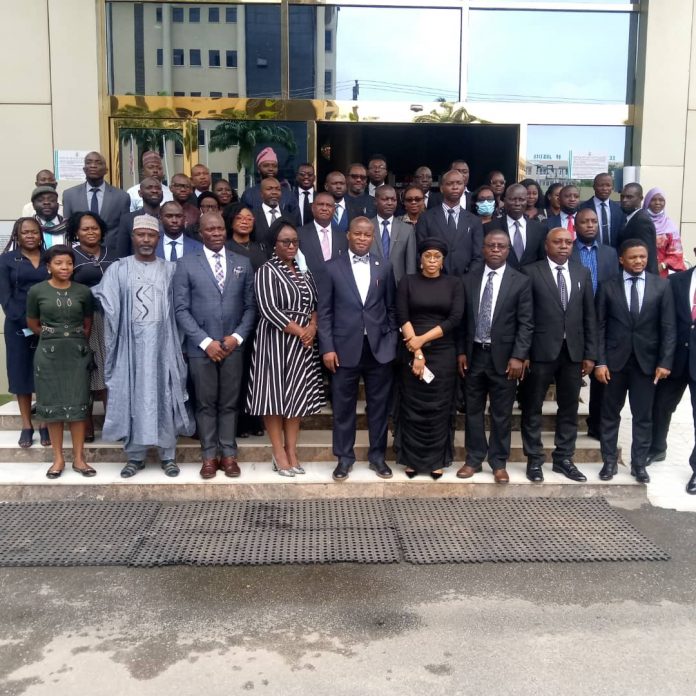The acting Chief Judge, Federal Capital Territory (FCT), Justice Hussein Baba-Yusuf, on Wednesday urged the judges in the country to avoid any act that would pitch them against the law as they perform their duties.
Justice Baba-Yusuf made the call while speaking with newsmen after the opening ceremony of a technical workshop on “Balancing Section 36 of the Constitution and Case Management Hearing (CMH)” in Abuja.
The News Agency of Nigeria (NAN) reports that the event was organised by the Administration of Criminal Justice Monitoring Committee (ACJMC), Federal Ministry of Justice in conjunction with MacArthur Foundation.
The chief judge, represented by Justice Christopher Oba of the FCT High Court, Apo, said everyone appointed as a magistrate or a judge must know that his or her duty is to obey the law.
“Case Management Hearing is not only particular to the magistrates’ court. It is applicable to all courts.
“The essence is that speedy hearing and conclusion of matters are done and the rules as being put in place by the practice direction, is to hasten such hearings.
“So from hearing, taking evidence to include judgment should be done expeditiously, and one of the tools to get that done is the case management system.
“So from arraignment, you are able to sit with all the parties; the prosecution, the defence, and then they are able to have a schedule as to how to conclude the trial expeditiously. That is what the system is about,” he said.
Baba-Yusuf, who said no judge was skeptical about adopting the system, said the question was whether the level of effectiveness of CMH had been seen.
“When the law says this is what should be done, what we do is to ensure that we get it done.
“As a person, I know that everyone appointed to the office of either a magistrate or a judge knows that his first duty is to obey the law.
“So the law says this is the process to be followed, everybody is ready to follow it.“Whether the result has become evident or effective to be seen becomes the point here.
“For instance if the law says this must be done within so-so number of days, it is the duty of all judges to abide by it,” he said.
The Chief Magistrate of FCT Judiciary, Omolola Oladipo-Akindele, while delivering her lecture on Basic Principles of CMH in Practice, described it as “a pretrial hearing that is set after an arraignment.
“It is a judicial process which provides effective, efficient and purposeful judicial management of a case so asto achieve a timely and qualitative resolution of dispute.”
According to her, by Practice Direction 2017, Order 3 Paragraph 1, Case Management Hearing (CMH) takes place immediately afterarraignment.
She, however, said that since 95 per cent of criminal matters at the magistrates’ court are commenced by first information report (FIR), it would be impracticable to hold a CMH immediately after arraignment.
She hinted that besides through FIR, cases could also be instituted by direct criminal complaint and by way of a charge at the magistrates’ court.
Oladipo-Akindele then said what to do if a case was filed through FIR was to set a date for CMH within seven days after arraignment.
“This affords the prosecution the opportunity to comply with the provisions of Section 350(2) Administration ofCriminal Justice Act (ACJA).
“It also gives ample time for the defence to go through materials obtained from the prosecution,” she stated.
The judge, who said that further CMH could be required depending on the complexity of a case, however said that “ideally, one hearing should be encouraged in the magistrates’ court before the trial.”
The Secretary of ACjMC, Sulayman Kuku-Dawodu, also said that CMH would “enforce active participation and joint communication amongst the legal actors for the smooth progress of a case, establish schedules and impose deadlines on the parties, ensure parties agree to a timetable/schedules for the steps to be taken at trial,” among others.
He said the workshop was organised to enlighten stakeholders on the importance of CMH in the justice system.
(NAN)

Call:
Sandra - 07069148333
Pauline - 08174374150
Scholastica - 09060678434













